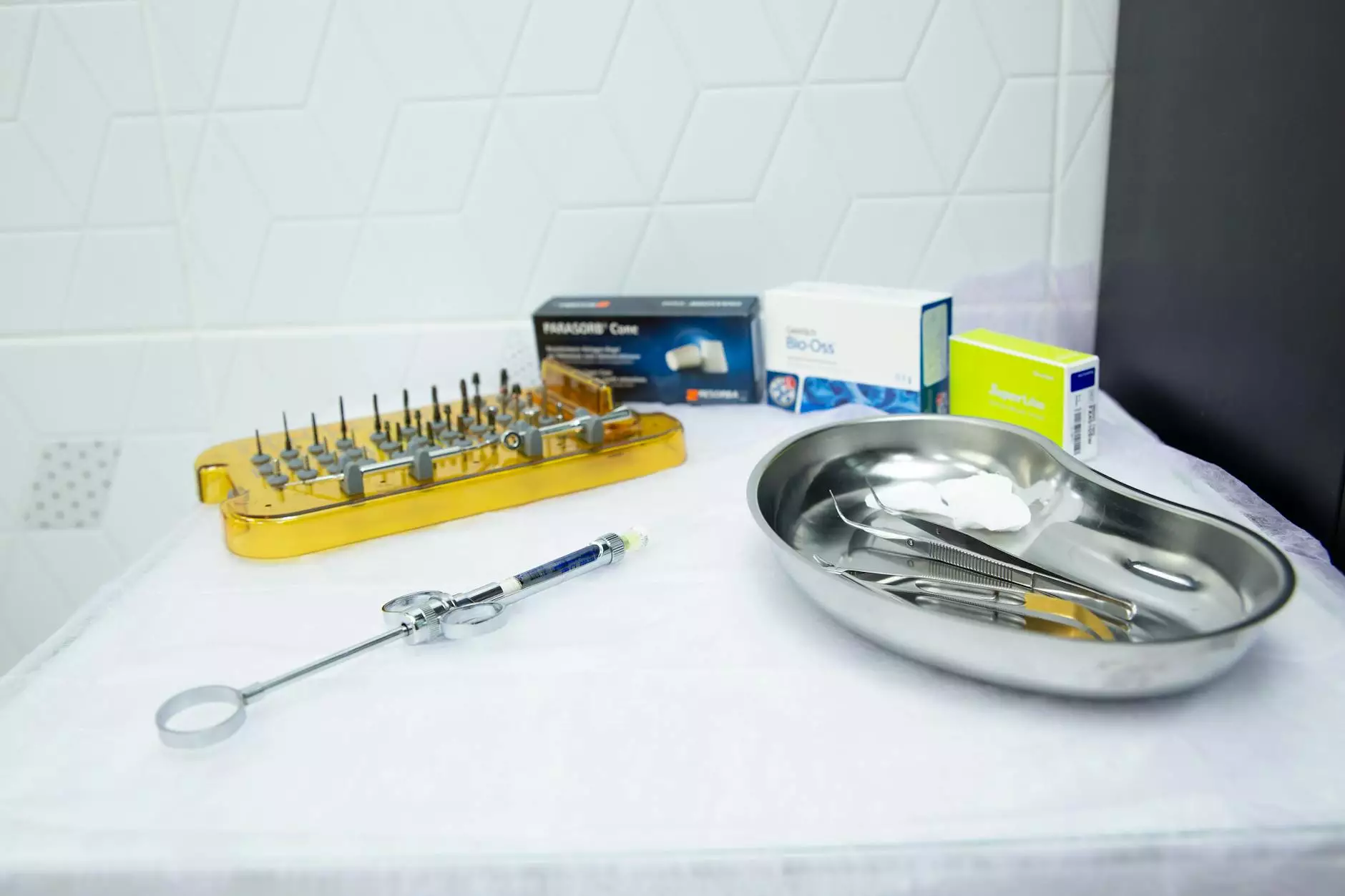The Rise of **Mobile Surgical Centers** in Modern Healthcare

In today's fast-paced world, healthcare delivery is evolving to meet the growing demands of patients and the complexities of modern medicine. One significant advancement in this realm is the emergence of mobile surgical centers, which have revolutionized the way surgical services are provided. These facilities are equipped to deliver high-quality surgical care while offering flexibility, accessibility, and efficiency.
Understanding Mobile Surgical Centers
A mobile surgical center is a fully equipped surgical facility on wheels, designed to perform surgeries in various settings apart from traditional hospitals. These centers are outfitted with state-of-the-art technology, enabling healthcare professionals to conduct a range of surgical procedures. The design and infrastructure focus on providing a sterile environment, which is critical for surgical operations.
The Structure of a Mobile Surgical Center
Typically, a mobile surgical center includes the following key components:
- Operating Rooms: Specialized surgical theaters equipped with advanced surgical tools and technology.
- Anesthesia Equipment: Essential devices for safe and effective anesthesia administration.
- Recovery Areas: Comfortable spaces for patients to recuperate post-surgery under professional supervision.
- Control Centers: Staff areas for surgeons and nurses to coordinate their surgical operations.
- Sanitation Facilities: Adhering to strict hygiene standards to prevent infections.
Benefits of Mobile Surgical Centers
The rise of mobile surgical centers reflects a commitment to providing improved healthcare services. Here are some of the primary benefits these centers offer:
1. Improved Accessibility
One of the most significant advantages of mobile surgical centers is their ability to provide surgical services to underserved areas. Rural communities often experience challenges accessing healthcare facilities. A mobile surgical unit can travel to these locations, ensuring that patients receive the care they need without having to travel long distances.
2. Cost Efficiency
Operating a mobile surgical center can significantly lower healthcare costs. Traditional hospitals have substantial overhead expenses, including maintenance, staffing, and insurance. Mobile units can reduce these costs, making surgical care more affordable for patients and insurance providers alike.
3. Flexibility and Convenience
Mobile surgical centers offer flexibility in service delivery. They can set up temporary surgical services for specific community needs, health fairs, or disaster response situations. This adaptability allows healthcare providers to respond promptly to emerging health crises effectively.
4. Enhanced Patient Experience
Patients benefit from a focused and personalized environment in mobile surgical centers. The smaller scale of these units often results in shorter wait times and a more relaxed surgical experience. Patients can enjoy appointments closer to home, allowing for a smoother recovery process.
Technological Advancements in Mobile Surgical Centers
The effectiveness of mobile surgical centers is largely attributed to their cutting-edge technology. Here are a few technological innovations that enhance their capability:
1. Advanced Imaging Systems
Modern imaging systems, such as MRI and CT scanners, integrated into mobile surgical centers enable precise diagnostics and guidance during surgical procedures.
2. Telemedicine Integration
Incorporating telemedicine into mobile surgical centers allows real-time consultations with specialists, ensuring optimal care decisions even in remote locations.
3. Minimally Invasive Surgical Tools
With the availability of minimally invasive surgical instruments, these mobile centers can perform complex procedures with less trauma and quicker recovery times, improving patient outcomes dramatically.
The Role of Mobile Surgical Centers in Disaster Response
In emergency situations such as natural disasters or pandemics, mobile surgical centers play an imperative role by providing immediate surgical care when traditional healthcare facilities might be overwhelmed or inaccessible. Their rapid deployment capabilities make them a critical asset during such emergencies.
Case Studies of Effective Deployment
Several case studies highlight the successful deployment of mobile surgical centers during crises:
- Hurricane Relief: Following Hurricane Katrina, mobile surgical units provided essential surgical care to those displaced and injured.
- COVID-19 Pandemic: During the pandemic, mobile surgical centers were deployed to handle non-urgent surgeries, alleviating the burden on hospitals treating COVID patients.
The Future of Mobile Surgical Centers
The future of mobile surgical centers looks promising as technology continues to evolve and healthcare models adapt to meet patient needs. Innovations in robotic surgery, augmented reality for surgical training, and advancements in materials science will further enhance the capabilities of mobile units.
Potential Challenges
Despite the evident benefits, there are challenges that the mobile surgical industry must address:
- Regulatory Compliance: Ensuring that mobile units adhere to health and safety regulations is paramount.
- Funding: Securing financing for mobile surgical operations can be challenging and requires strategic partnerships.
- Integration with Local Health Systems: Successful collaboration with local healthcare providers and systems is essential for seamless patient care.
Conclusion
In conclusion, mobile surgical centers represent a transformative approach to healthcare delivery that prioritizes accessibility, cost efficiency, and patient-centered care. As we move forward, the integration of advanced technologies and the adaptability of these centers will redefine surgical services, ensuring that quality care is available to all, regardless of their location. The potential to enhance community health, respond to emergencies, and provide personalized patient experiences makes mobile surgical centers an indispensable part of the future healthcare landscape. For more information or to consult with a leading provider of mobile surgical solutions, visit odulairmobileclinics.com.









